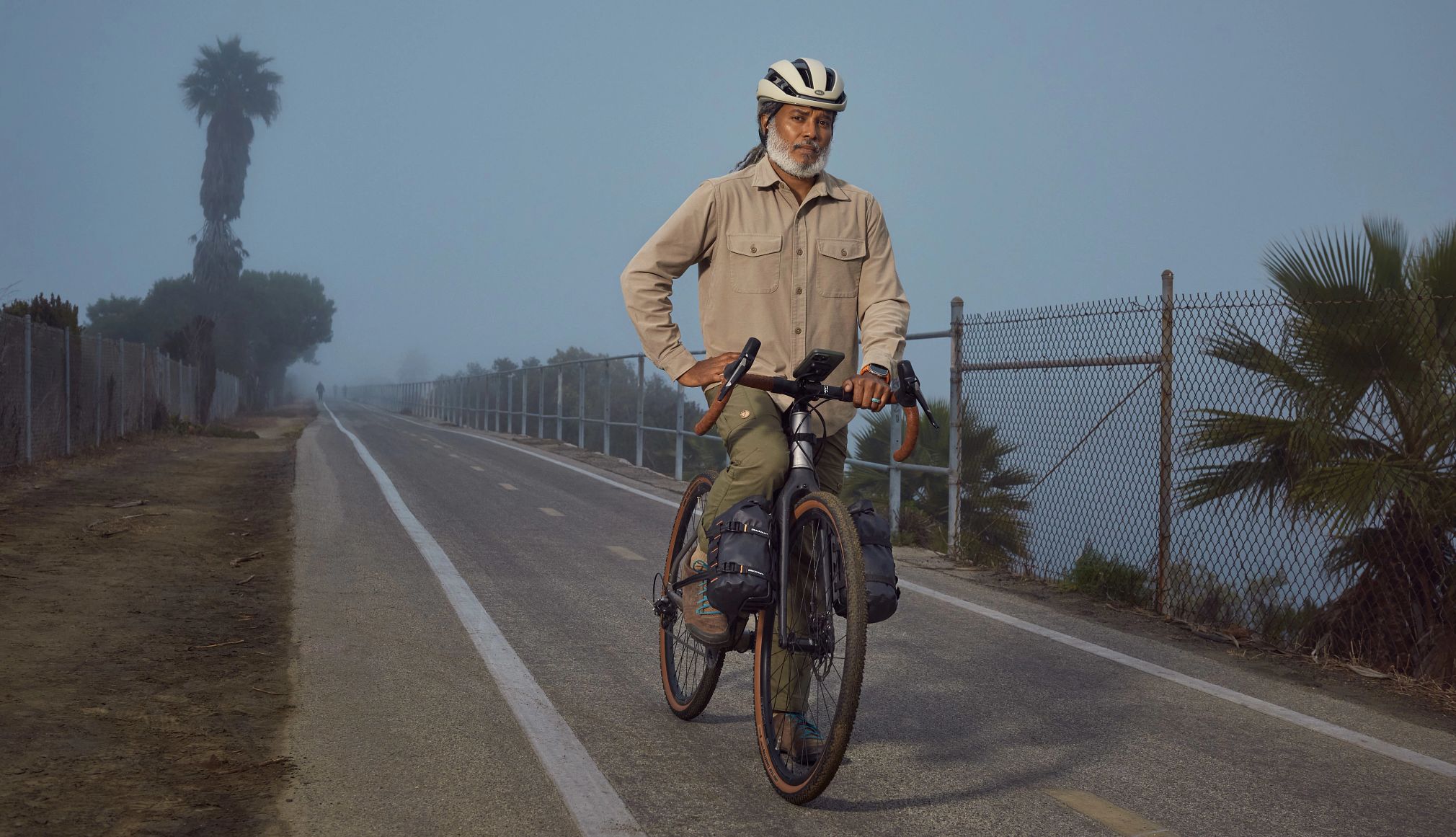AARP Hearing Center
On a bike, you feel everything: the air, the ground beneath you, the beat of your heart. You’re alive in a way that’s undeniable. Over the years, riding supported me physically and spiritually. It comforted me to get around using my own strength, feeling that pulse of life.
As I was approaching 40, working too hard in marketing jobs, driving because I had to, I felt that sense of freedom slipping. I needed something just for me, a way to quiet the noise of events and demands, but I also wanted a challenge. So I biked from Vancouver, British Columbia, to Tijuana, Mexico, 35 days with just my thoughts as company. No music, no distractions — only the hum of the road. The next year, I rode from Miami to New York City, through plantations and swamps in the Deep South. As a person of color alone in that landscape, I couldn’t escape the layers of history around me. Freedom took on a different kind of weight; it was hanging in the air, stitched into the roads I traveled.
In 2014 and 2020, I retraced the path of the Underground Railroad from New Orleans to Niagara Falls. Every mile felt like I was stepping into a story greater than mine. And in 2022, I rode 1,900 miles from Fort Missoula, Montana, to St. Louis to re-create the 1897 ride of 20 Black infantrymen — a unit of Buffalo Soldiers — who, with their commanding officer, were testing whether bikes could serve as troop transport through brutal heat and snow. I fought through 105-degree stretches in the Nebraska Sandhills, trudged up Montana’s steepest inclines. If I thought about quitting, my wife’s voice was in my ear: “You have to do this. You’re bringing history to life.”


Now, in my 50s, these rides feel just as essential. My wife and I have a 3-year-old son, and with that comes a deeper need to understand where we came from. As a husband and father now, my trips are much shorter. I won’t ride at night. I need to protect myself for my family. But there are still so many roads calling. Last summer, I spent a few days riding the Black Belt of historic sites around Selma, Alabama. Riding is freedom.




































































You Might Also Like
A New Life for Once-Doomed Animals
Clare Staples left a glamorous career to rescue mustangs, horses and a few lucky others
Our Search for Lost History
John Mills researches people who were enslaved—and shares with their descendants
She's a World-Class Racer at 65
Skateboarder Judi Oyama took a 20-year break from racing. She's back — and faster than ever